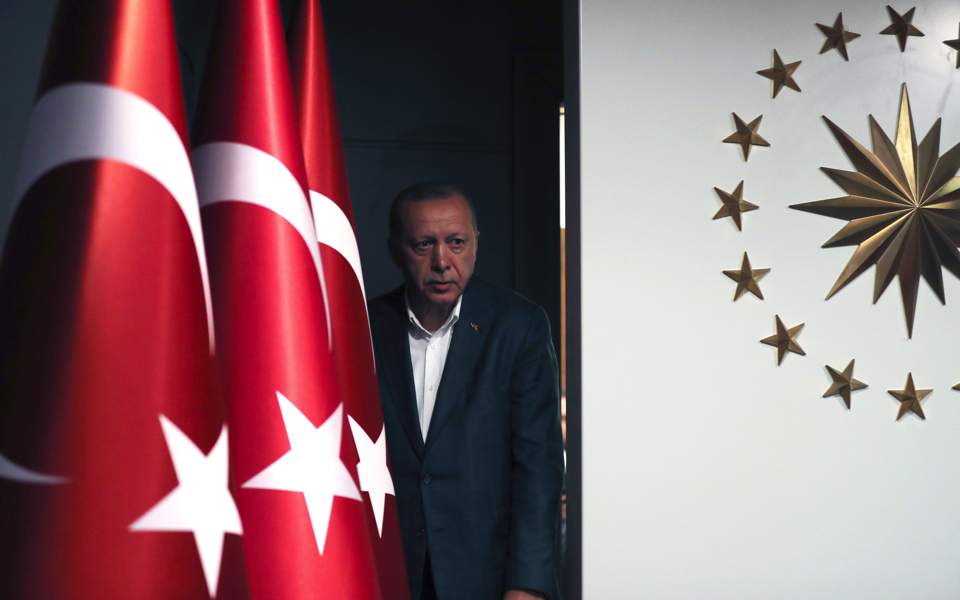Istanbul is one of the most famous cities in the world, on account of a storied history encompassing myriad great events.
As Byzantium, it was first the fortress of the eastern Roman Empire and then the bastion of Orthodox Christianity.
After its fall to the Turks in 1453, the newly-minted Constantinople became the capital of the Ottoman Empire, from where Sultans dispensed law and justice across a domain that at its peak spanned from the Middle East and North Africa to the gates of Vienna.
While diminished in the post-First World War settlement, Istanbul has retained its economic importance to contemporary Turkey, as well as a romantic hold on the hearts of many beyond its borders.
One man who understands this implicitly is Recep Tayyip Erdogan. Long before a national political career that has seen him essentially run Turkey as Prime Minister from 2003 and then President from 2014, Erdogan was mayor of Istanbul.
And he was a pretty good one. Istanbulis recall a reformer who pared down municipal debt while tackling congestion and air pollution.
The city rewarded its former mayor by providing the political muscle for his transition into national politics, buoyed by the idea that his social conservatism would play second fiddle to his commitment to financial liberalisation and securing EU membership.
In a country where the threat of military rule – frequently exercised in the course of Turkey’s tumultuous history – was long deemed by Istanbul’s liberal elite to be the greatest danger to their interests, even Erdogan’s Islamist beliefs were considered a price worth paying in exchange for stability and economic growth.
Erdogan has not looked back since, but Istanbul – along with much of the remainder of secular, liberal Turkey – has suffered buyer’s remorse.
While Erdogan at first delivered on his early promises of economic development and the defanging of the military, it quickly became apparent that he had a loftier goal: the complete transformation of Turkish society and politics. And he was not going to allow little things like the norms of democracy and rule of law to stand in his way.
Under Erdogan, Turkey has begun to adopt the trappings of a police state. Press freedom has been crushed, and the country has the highest number of journalists imprisoned per capita in the world.
Opposition political parties are denied fair access to media outlets, and their activists have been harassed and jailed. The judiciary has been compromised, and show trials of military leaders and anyone deemed a threat by Erdogan – particularly after the failed coup d’etat of 2016 – occur on a regular basis.
Through it all, Turkey’s secular settlement has been comprehensively undermined by a variety of laws ranging from the ending of the headscarf ban in public institutions to the restriction of the sale and advertising of alcohol.
Perhaps as they surveyed the wreckage of Turkish civil society occasioned by his period in office, Isanbulis recalled that, while he was their mayor, Erdogan pronounced that “democracy is like a train: you get off when you reach your destination”, and decided that enough was finally enough.
Or maybe they noticed that even his economic bubble had burst, with the economy nose-diving as the bill for years of debt-fuelled growth came due.
Either way, in March this year, Istanbul rose to the occasion once more, determined to recapture its role in Turkey’s destiny by electing opposition candidate Ekrem Imamoglu in its mayoral election by a margin of just 13,000 votes. This was narrow enough for an enraged Erdogan to pressurise the Electoral Commission to declare the vote invalid owing to “irregularities”.
The resulting showdown has been epic, but decisive. Erdogan threw everything but the kitchen sink at Imamoglu, accusing him of being a terrorist, a coup supporter, an advocate of Egypt’s militant secularist President Sisi, and even secretly a Greek.
Despite this, and the institutional bias against him occasioned by the President’s party having control of all the levers of power and influence, Imamoglu won last weekend’s rerun handsomely with some 54 per cent of the vote.
It is difficult to overplay the significance of this incredible result in unlikely circumstances. A quarter of a century of Erdogan’s sway over the city has ended. But it is ultimately the refutation of his methods and direction for all of Turkey that will have the greater resonance.
Erdogan’s reputation and rule has been built on the inevitability of his success, with victory after victory reinforcing the idea that there was no alternative. For the first time in many years, Turks now have a new star in the firmament to turn to. It is difficult to see how Erdoganism will long survive this revelation.
The path of democracy in Turkey may still resemble Erdogan’s train journey. But while he may have decided to alight some time ago, Istanbul has proven that there is still plenty of track left before the end of the line.
By Alan Mendoza
Source: City A.M.
City A.M.’s opinion pages are a place for thought-provoking views and debate. These views are not necessarily shared by City A.M.



